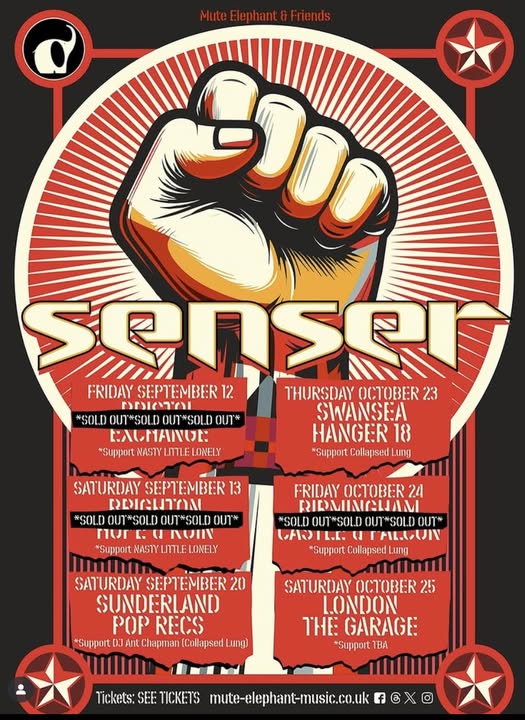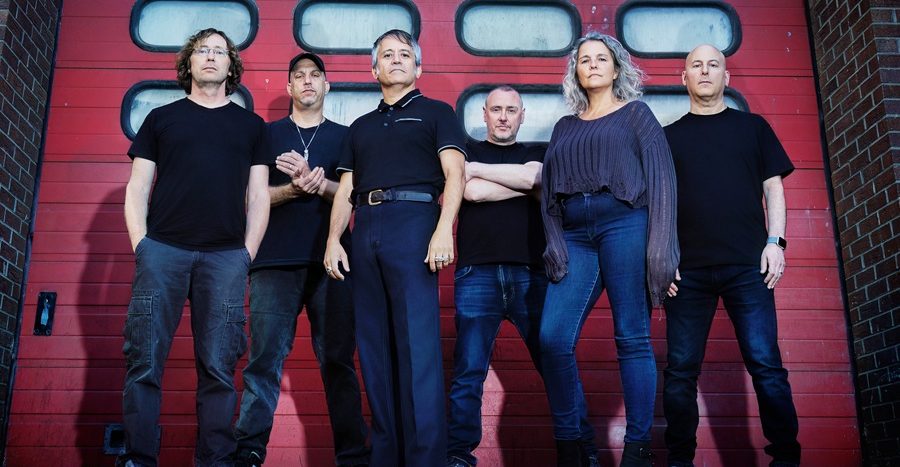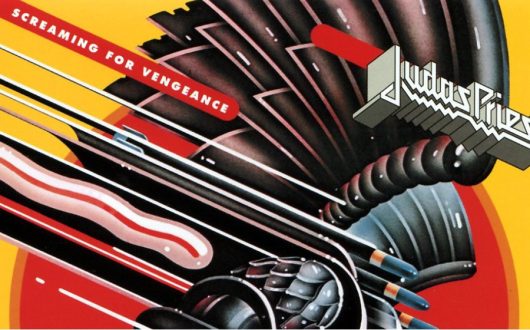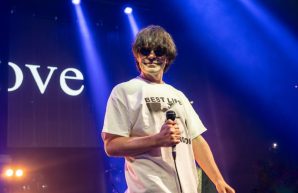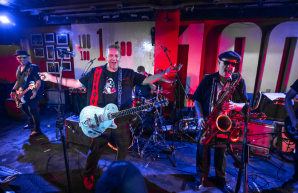Words: Adrian Hextall
LONDON; It’s a rare and exciting thing to sit down with a band that has, for over three decades, operated on its own terms. Senser, the London-based collective that smashed the boundaries between rock and rap in the ’90s, is back with a new album, Sonic Dissidence, their first in 12 years. We caught up with vocalist Heitham Al-Sayed on a quiet Sunday afternoon to delve into the history, politics, and enduring legacy of one of Britain’s most fiercely independent bands.
“We’ve not really been apart,” Al-Sayed states, correcting the assumption that the band had a formal reunion. He clarifies that since the release of their third album, Schematic, the core lineup has remained intact. “We’ve been consistently grouped,” he says, painting a picture of a continuous, living project rather than a series of sporadic comebacks. Senser’s journey has been less a series of breaks and more a long, continuous project. Their initial explosion onto the scene came with the 1994 debut album, Stacked Up, a politically charged masterpiece that blended heavy riffs with intricate rhymes, cementing their place as pioneers of a sound that would later be commercialized by others. Check out Age of Panic from the reissued 20th anniversary edition.
The original lineup’s reunification in 2003 was initially intended for a single show, but the creative chemistry proved too strong to ignore. This reformation led to the albums SCHEMAtic (2004), How to Do Battle (2009), and To the Capsules (2013). Now, after a 12-year gap, Sonic Dissidence arrives. Al-Sayed explains that this long silence wasn’t due to a lack of activity but a reflection of the band’s reality. “Everybody has different lives now, children and different jobs… we’re really lucky that we can do it to the level that we do.” The process for Sonic Dissidence was a testament to this, with members collaborating remotely from different countries, building the album “from demos in their own, wherever they are.” This method, while time-consuming, allowed the band to push their creative boundaries without the pressure of a traditional recording schedule.
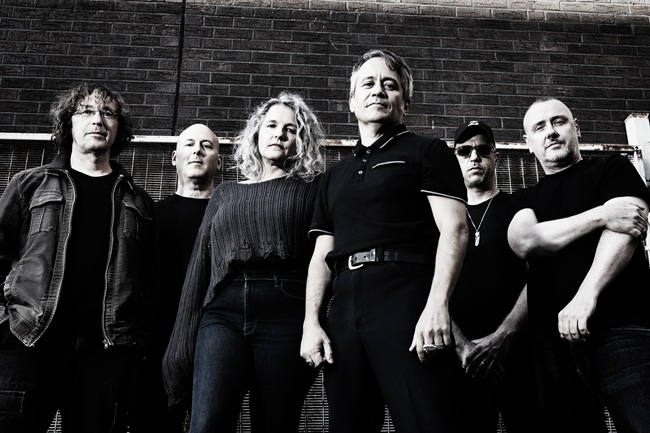
Senser’s music has always been a mirror held up to the political landscape, and the last decade has offered them no shortage of material. The album’s title, Sonic Dissidence, feels particularly apt. “The last 10 years has been one long political climate,” Al-Sayed observes, citing the Trump presidency, Brexit, and the pandemic as key influences. He notes the period after 2016 as a “consistent horror show,” a sentiment that fuels the album’s lyrical fire.
Heitham is unapologetic in his political messaging, particularly on the rise of far-right nationalism in the UK. He sees the “Britain First” movement and the recent marches as a “tried and tested route” of propaganda, a domestic parallel to the “Make America Great Again” rhetoric. He points out how the once-innocuous St. George’s Cross has been co-opted by racist groups, transforming a symbol of national pride into a banner for exclusion. “If I had one thing to say from this album,” he declares, “it’s if you are on the left, stay organised, stay together.” He urges solidarity among progressive voices to counter the fragmentation that threatens to hand the upper hand to a minority pushing a fascist agenda. Al-Sayed is deeply concerned by how far the Overton window, the range of ideas tolerated in public discourse, has shifted to the right, even among mainstream politicians. For him, the album is a call to arms, a sonic manifesto for compassion and collective action against a rising tide of intolerance.
Senser’s approach to the industry is as defiant as their sound. “We decided to just do it ourselves completely without any other” funding, Al-Sayed says, explaining that the new album was entirely financed by their gigs and pre-sales. He dismisses the need for a record company, noting that their key needs are simply “gigs and PR… letting people know that something’s happening.” This self-sufficient model is a powerful statement against an industry that often commodifies and dilutes artistic vision. Al-Sayed marvels at the band’s ability to operate as a self-sustaining entity, largely thanks to the meticulous organizational skills of bassist James Barrett. He sees no need to involve a record company at this point, questioning what role they could even play. “It would be so strange at this point to try and… integrate some record company in it,” he muses. “I don’t really know what kind of role they would even have.” This fiercely independent spirit allows them to maintain complete creative control, ensuring that their message remains undiluted and true to their vision.
One of the most striking elements of Sonic Dissidence is the clarity and power of Al-Sayed’s vocals. In a modern rap landscape often dominated by “mumble rap,” his diction is a throwback to a time when the message was paramount. He reflects on the early days of hip-hop, where artists like Run-DMC and Schoolly D prioritized clear, impactful lyrics. “Before that,” he says, “that was part of it was, ‘we want to hear what you’re saying’.” He critiques the over-simplification of modern rap, arguing that while technology has made music production free, it’s creativity and vision that make it memorable. “Anyone can do it on their phone,” he says, but creating something that will be remembered 40 years from now requires an artistic vision and a willingness to push boundaries.
Senser’s live presence is a crucial part of their identity. Having recently played shows across Europe, including a well-received gig in Norway, a country they hadn’t visited in 30 years, Al-Sayed finds it “really touching” to see old fans bringing their children to experience the band for the first time. He recounts a moving story of a family from Slovenia who traveled to a show in Belgium just so their child could experience Senser as their first-ever gig, mirroring their own childhood experience. This intergenerational connection is something Al-Sayed clearly cherishes, a testament to the band’s enduring appeal.
Looking ahead, he confirms a series of upcoming UK dates, including an album launch show in London at The Garage. The band’s “touring” style is unique, with shows broken up into weekends to accommodate everyone’s lives. It’s a pragmatic approach that allows them to continue doing what they love without sacrificing their personal lives. As for the setlist, fans can expect a powerful mix of new material and classic tracks, a testament to the band’s enduring legacy and their continued relevance. Senser’s return is more than just a new album; it’s a defiant statement that a band can exist on its own terms, powered by passion, political conviction, and a loyal following. Sonic Dissidence is proof that some voices are too important to fade away.
To purchase the new album visit: https://linktr.ee/senserband
Pre save the album here: https://earache.lnk.to/
Senser play the following UK 2025 dates:
October 17: Southampton, The 1865 (Intergalactic Psychedelic Circus)
October 23: Swansea, Hangar 18 Music Venue
October 24: Birmingham, The Castle & Falcon
October 25: London, The Garage
November 14: Minehead, Butlins Minehead Skyline Pavilion (Shiiine On Festival)
Tickets can be found here:
